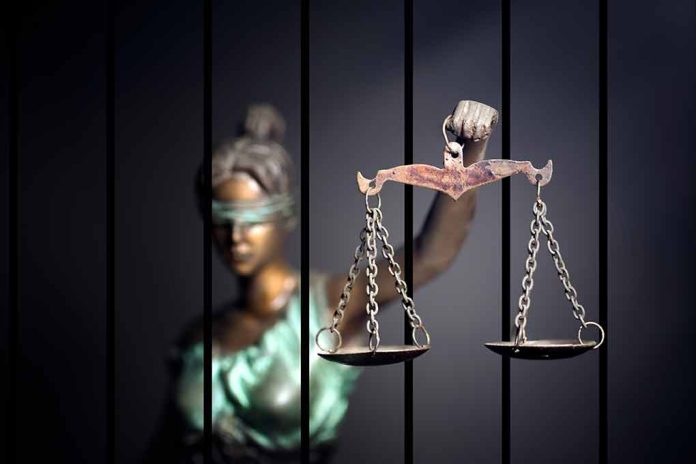
Cuban judge Melody González Pedraza who sentenced political dissidents to prison through sham trials will be deported from the United States after her asylum request was denied based on documented human rights violations.
Key Takeaways
- Melody González Pedraza, a former Cuban judge implicated in political repression, faces deportation after entering the US under Biden’s “Humanitarian Parole” program
- González Pedraza is listed on the Foundation for Human Rights in Cuba’s blacklist of Castro regime repressors for her role in politically-motivated trials
- She sentenced four young Cubans to prison on dubious charges with trials lacking evidence and witnesses
- An immigration judge in Florida issued her deportation order with a June 20, 2025 appeal deadline
- The case highlights the larger issue of at least 115 Castro regime representatives residing in the US due to Biden-era immigration policies
Repressive Cuban Judge Meets American Justice
A Florida immigration judge has ordered the deportation of Melody González Pedraza, a Cuban judge notorious for her role in the Castro regime’s political repression. González Pedraza, former president of the Municipal Court of Encrucijada in Villa Clara province, has been directly implicated in the unjust imprisonment of peaceful dissidents through sham trials that lacked basic evidence and witnesses. Her presence in the United States came through the Biden administration’s controversial “Humanitarian Parole” program, which has allowed numerous Cuban regime officials to enter the country.
“The victims of Melody Gonzalez, both in Cuba and in the United States today can feel that justice was done in this great country. Asylum is deserved by the repressed, not the repressors.” – Cuban human right activist Samuel Rodriguez
A History of Judicial Abuses
González Pedraza’s record includes presiding over the politically-motivated trial of four young Cuban men who received harsh prison sentences despite a complete lack of credible evidence. When challenged, even the People’s Supreme Court of Cuba acknowledged judicial irregularities in the case but refused to review or overturn the convictions. This pattern of judicial misconduct placed González Pedraza on the Foundation for Human Rights in Cuba’s (FHRC) official blacklist of Castro regime repressors, a designation that ultimately contributed to her deportation order.
After arriving in the United States and requesting asylum, evidence of González Pedraza’s role as a repressive official was presented in court, leading to the denial of her application. Her husband has already been deported after his own asylum request was rejected. The deportation order comes with a June 20, 2025 deadline to file an appeal, though human rights advocates strongly support her removal from the country as a matter of justice for her victims in Cuba.
Biden’s Parole Program Under Scrutiny
The case has brought renewed attention to the Biden administration’s immigration policies that have allowed numerous Castro regime officials to enter and remain in the United States. According to the FHRC, at least 115 representatives of the Cuban dictatorship currently reside in the US due to these policies. Other officials, including Amalio Alfaro Matos and Narciso Amador Fernández Ramírez, have similarly entered the country under humanitarian programs despite their ties to the repressive Cuban government.
“This case underscores the importance of denouncing those who participated in the repression in Cuba and seek impunity abroad. International justice should not be a refuge for accomplices of the dictatorship.” stated by FHRC
A Warning to Regime Officials
Human rights advocates are hailing the deportation order as an important precedent that sends a clear message to other Cuban officials involved in political repression. The case demonstrates that those who participate in human rights abuses cannot simply escape accountability by seeking refuge in the United States. Cuban lawyer Maylín Fernández Suris emphasized that this case should prompt regime officials to “rethink their role within the Cuban regime’s repressive apparatus and assume responsibility for the consequences of their decisions.”
President Trump’s administration has consistently signaled that political oppressors will not find safe haven in America. This deportation order reinforces the principle that asylum protection is reserved for victims of persecution, not those who actively participate in state-sponsored repression. As González Pedraza faces return to Cuba, her case serves as a powerful reminder that the United States remains committed to holding human rights abusers accountable, regardless of their official positions or claims of persecution.



